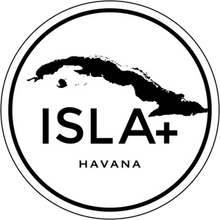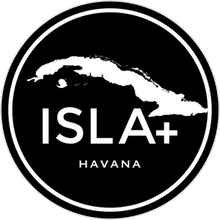
Cuban doctors hold an image of late Cuban President Fidel Castro during a farewell ceremony before departing to Italy to assist with the spread of the coronavirus outbreak, in Havana, Cuba, on March 21, 2020.
By Reuters
HAVANA/LOME—At the start of Togo's coronavirus outbreak, the small West African nation welcomed a team of 12 Cuban healthcare workers to tend to sufferers of the virus, boost its laboratory testing and help improve its hospital protocols.
While the virus was overwhelming healthcare systems worldwide, the Communist-run Caribbean island boasted a rare resource: a surplus of doctors trained in deploying abroad and battling infectious disease.
And it was willing to dispatch them all over the globe to nations requesting help.
“As scientific and medical circles groped in the dark, Cuban medicine, strong from past experiences, brought appropriate answers,” said the head of cooperation at Togo's foreign ministry, Charles Azilan.
Nearly 40 countries across five continents have received Cuban medics during the pandemic, as the island nation—home to just over 11 million inhabitants—has once more punched far above its weight in medical diplomacy.
Since its 1959 leftist revolution, Cuba has dispatched its “army of white coats” to disaster sites and disease outbreaks around the world in the name of solidarity. In the last decade, they fought cholera in Haiti and Ebola in West Africa.
Not that its brigades are purely altruistic. Cuba has exported doctors on more routine missions in exchange for cash or goods in recent decades, making them its top source of hard currency.
While some countries have received the medics for free during the pandemic, others are paying: a slight boon to Cuba's economy struggling with the coronavirus-induced collapse in tourism.
Togo's government, like many others in the past, has praised the brigades as an example of south-south cooperation, calling it a “turning point” in their relations.
Yet even wealthy, western nations like Andorra and Italy have welcomed Cuban medics to help fight the pandemic, as have countries that are not politically aligned with Cuba, such as Peru.
The success of the medics has been a setback for the administration of US President Donald Trump, which launched an unprecedented campaign against Cuba's medical missions in recent years, citing what it calls their exploitative labor conditions.
Havana dismisses the US attacks as ideologically-driven.
Cuba experts say while some of the US criticism was legitimate, it ultimately aimed to strangle the island's economy to foment change and woo anti-Castro voters in the swing state of Florida ahead of November's US presidential election.
But Washington was “almost totally isolated” on its Cuba policy, said Paul Hare, a former British ambassador to the island who lectures at Boston University's Pardee School of Global Studies, while its “America First” strategy contrasted unfavorably with Cuba's medical diplomacy.
Several Caribbean nations complained for example in April of US customs blocking shipments of medical supplies to them even as the region was welcoming hundreds of Cuban doctors.
With financial aid from its former ally the Soviet Union, Cuba built up a healthcare system that was the envy of the developing world under the leadership of the late Fidel Castro.
Some of those advances have been lost since the communist bloc collapsed. Many hospitals are run down, medicines are in short supply and Cubans complain about a decline in the quality of medical education.
Still, Cuba has one of the highest ratios of physicians per capital in the world and even before the pandemic struck, had some 28,000 medics deployed globally. It has since dispatched a further 4,000.
“They are lifesavers,” said Ralph Gonsalves, prime minister of Saint Vincent and the Grenadines, and chairman of the Caribbean bloc CARICOM. “In some Caribbean countries, they constitute the backbone of the response to the pandemic.”
Jamaica for example welcomed 137 Cuban doctors in March, in addition to the 296 already practicing there.




